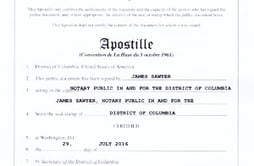Services Offered
General Notary Work
Estate Planning
Loan Signing






Apostille


and more …

General Notarization
Need documents notarized quickly and accurately? I’m here to help!
Services Offered:
📜 General Notarization
Expert in notarizing a wide range of documents including affidavits, powers of attorney, wills, and more.
🏠 Mobile Notary Services
Convenient mobile notary services available to come to your home, office, or other preferred location.
⏰ Flexible Scheduling
Available for appointments during business hours, evenings, and weekends to fit your busy schedule.
🔒 Confidential and Secure
Dedicated to maintaining the highest level of confidentiality and security for all your sensitive documents.
Why Choose My Notary Services?
Certified and Reliable: As a certified Notary Public, I ensure all documents are handled with the utmost professionalism and care.
Attention to Detail: Thorough review and accurate execution of all notarial acts to prevent any issues.
Customer-Focused: Committed to providing exceptional service with a focus on your convenience and satisfaction.
For prompt, professional notary services tailored to your needs, get in touch today!

Estate Planning
In Texas, several estate planning documents may require notarization to be legally effective. Notarization helps confirm the identity and willingness of the person signing, making the document harder to challenge in court. Here’s a list of common estate planning documents and their notarization requirements in Texas:
Many estate planning documents need to be notarized, including:
Living will: A living will must be notarized to ensure it is authenticated in a way that can be recognized in court.
Revocable trust: Most living trusts need to be notarized, especially if they will hold real property. Many banks and financial institutions also require notarization.
Beneficiary designations: A designation of beneficiary form must be notarized to be accepted.
Will: A will (or last will and testament) specifies how a person’s assets should be distributed upon their death. It can also name guardians for minor children and outline final wishes, such as burial preferences. A will must go through probate, the court-supervised process of validating and executing the document.
Living Trust: A living trust allows a person to transfer assets into a trust while they’re still alive, which can help avoid probate upon death. A trustee is designated to manage these assets according to the trust terms, and beneficiaries are named to receive the assets after the trust creator (or grantor) dies. A living trust can be either revocable or irrevocable.
Power of Attorney (POA):
Financial Power of Attorney: This document allows a trusted person, known as an agent or attorney-in-fact, to handle the individual’s financial affairs, such as paying bills or managing investments, if they become unable to do so.
Medical Power of Attorney: This document appoints someone to make healthcare decisions if the person becomes incapacitated and cannot make decisions themselves.
Advance Healthcare Directive: (Living Will): An advance directive, or living will, outlines a person’s preferences for medical care in case they’re unable to communicate their wishes. This may include instructions on life-sustaining treatments, organ donation, and end-of-life care.
HIPAA Authorization: This document allows specified individuals, like family members, to access a person’s medical records and discuss health information with healthcare providers, which can be crucial for making informed medical decisions.
Beneficiary Designations: Many financial accounts and insurance policies allow the account holder to name a beneficiary. These designations often supersede instructions in a will, so they are an essential part of estate planning.
Guardianship Designation: This document is often included in a will, designating guardians for minor children or dependents. It ensures that, in the event of both parents' death, the children are cared for by individuals chosen by the parents.
Letter of Intent: Although not a legally binding document, a letter of intent can be used to communicate wishes to family members or to the executor about specific items or instructions. It might include personal messages, funeral instructions, or specific wishes for asset distribution.
Digital Assets Authorization: This document provides instructions on how digital assets (like social media accounts, email accounts, and online financial accounts) should be managed or transferred, and it authorizes designated individuals to access these accounts if needed.
Other estate planning documents include:
Durable power of attorney: A notary is required if real estate is involved.
Last will and testament: While a will doesn't need to be notarized to be valid, it's often a good idea to have it notarized. A notary can also act as a witness to a will.
Health care directive: A written or oral directive must be witnessed, but doesn't need to be notarized.
Estate planning documents are legal instruments used to manage and protect an individual’s assets, medical decisions, and family interests during their lifetime and after their death. They provide instructions for distributing property, appointing guardians, and handling medical or financial affairs in case of incapacity.

Loan Signing Agent
Are you in need of a reliable and professional Loan Signing Agent? Look no further!
What I Offer:
📜 Professional Notary Services
I am a certified Notary Public with extensive experience in handling loan documents and real estate transactions. My meticulous attention to detail ensures that all paperwork is completed accurately and efficiently.
🏠 Loan Signing Expertise
Specializing in mortgage and loan document signings, I provide a smooth and stress-free experience for all parties involved. From verifying identities to notarizing signatures, I handle every step with precision.
⏰ Flexible Scheduling
I understand the importance of timing in real estate transactions. Whether you need a signing agent during business hours, evenings, or weekends, I am available to accommodate your schedule.
💼 Reliable and Confidential
With a commitment to confidentiality and impartiality, I ensure that your sensitive information remains secure throughout the process.
Why Choose Me?
Certified and Experienced: As a licensed Notary Public with specialized training in loan signings, I bring expertise and professionalism to every appointment.
Detail-Oriented: I double-check every document to prevent errors and delays.
Customer-Centric: My goal is to make the signing process as smooth and straightforward as possible for you and your clients.
For prompt and professional notary and loan signing services, reach out today! Let’s ensure your documents are signed and notarized correctly, every time.

Apostille
An apostille is a certification attached to a document that verifies its authenticity for use in another country. It simplifies the process of legalizing documents for international use by certifying the document's origin and ensuring it's accepted across borders.
Here's a quick breakdown:
Purpose: An apostille confirms that the signature, seal, or stamp on a document is genuine and that the person who signed it had the authority to do so. This is important for various documents, such as birth certificates, marriage certificates, academic diplomas, and legal contracts.
The Hague Convention: The process of issuing an apostille is governed by the Hague Convention of 1961. This treaty standardizes the way documents are authenticated between member countries, making international document validation more straightforward.
Issuance: Apostilles are issued by designated authorities in the country where the document originated.
Format: An apostille is usually a separate certificate attached to the document or, in some cases, a stamp or sticker on the document itself. It contains information about the issuing authority, the document's details, and the authenticity of the signature.
Non-Member Countries: If a country is not a member of the Hague Convention, the apostille process doesn't apply. In such cases, documents may need to be authenticated through a different process, often involving consular legalization.
If you have a specific document or situation in mind, I can help!
How It Works:
Document Review: We would meet to for a quick review of your documents.
Notarization: Our certified notary will notarize your documents, if necessary.
Apostille: We will process the apostille with the relevant authorities.
Delivery: Pick up your apostilled documents or opt for our delivery service.
Do you need an apostille for your important documents?
Our Apostille Notary Public services offer a hassle-free solution for all your notarization and apostille needs.
